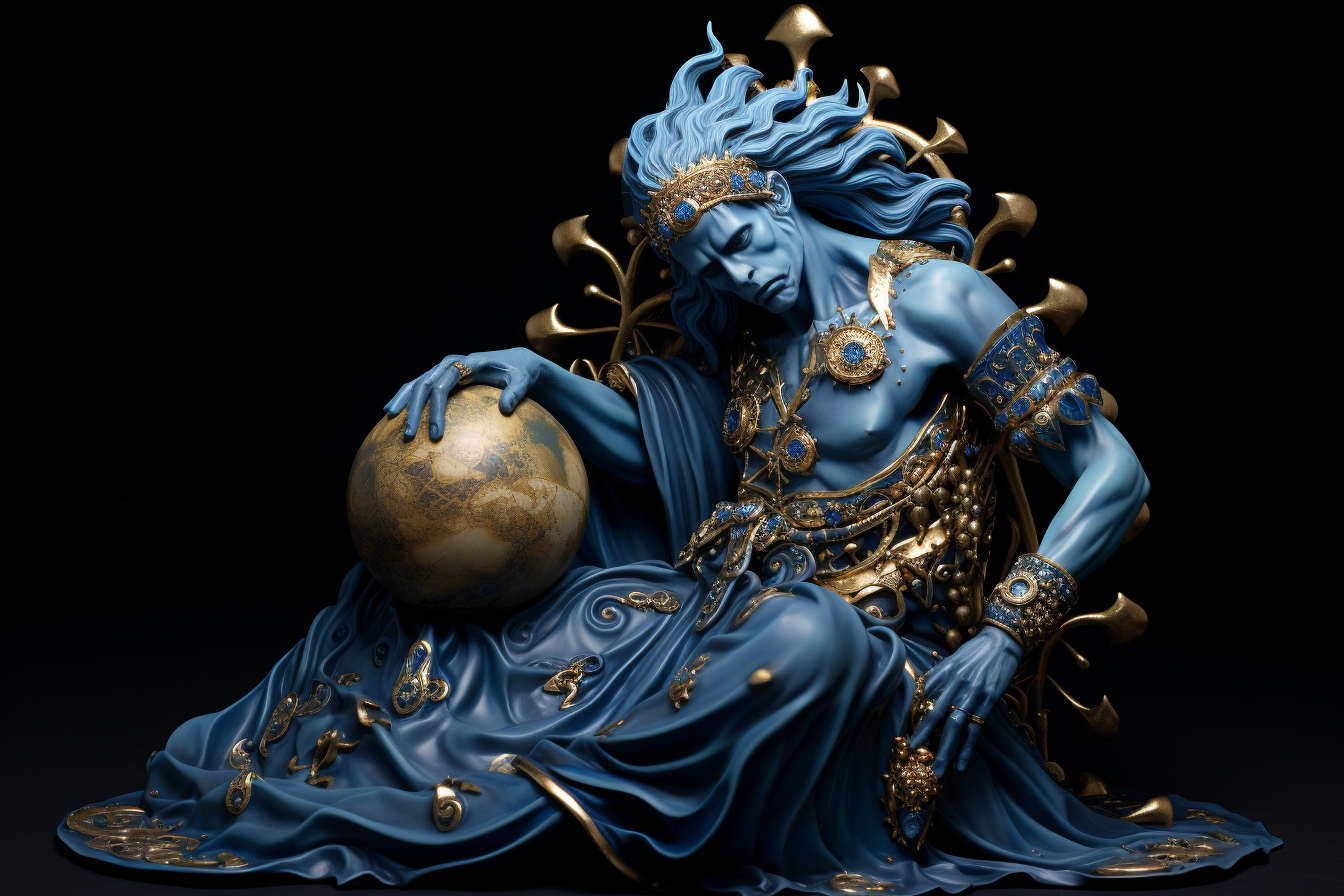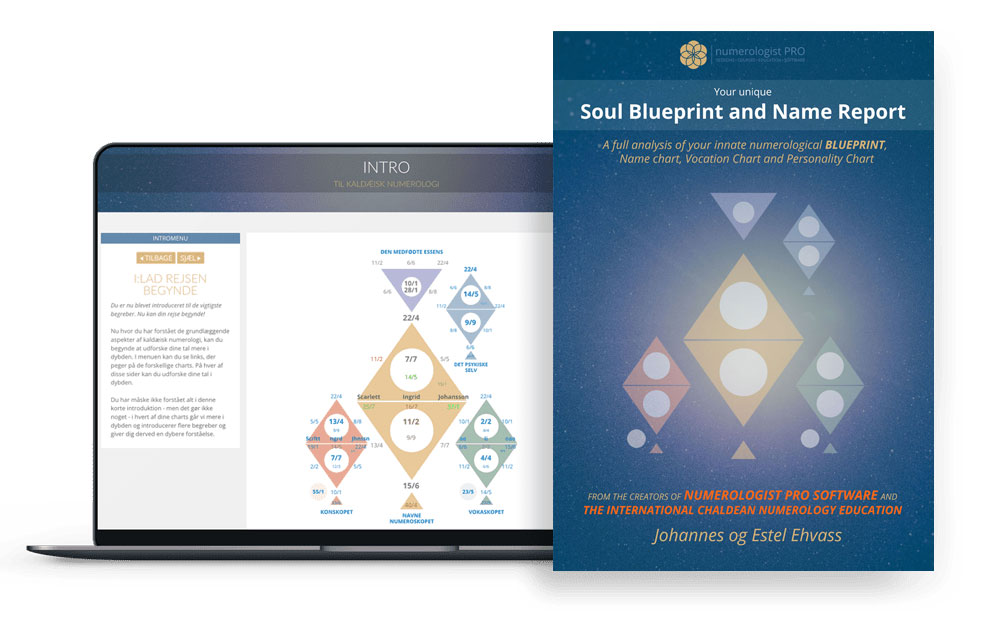Pluto in Astrology

Johannes Ehvass
Welcome, dear reader! In this series of articles, we delve into the fascinating realm of astrology and its emphasis on the heavenly bodies. Each heavenly body, replete with its own attributes and mythic tales, significantly influences our personalities, destinies, and the subtle web of connections in our lives. As we explore these celestial bodies, we will uncover the enduring insights and intricate details that make astrology an intriguing and enduring field. Join me on this journey to discover the mysteries and allure of the planets.
Pluto: The Powerhouse of the Cosmos
Astronomical Significance

Pluto, a name that evokes intrigue and fascination among stargazers and astrologers alike, remains one of the most enigmatic objects in our solar system. Classified as a dwarf planet, it once held the title of the ninth planet from our Sun, before redefinitions altered its planetary status. However, this change in terminology in no way diminishes the importance or curiosity surrounding Pluto.
Located in the Kuiper Belt, a region beyond Neptune teeming with small icy bodies, Pluto stands out not only due to its relative size but also its unique characteristics. Though smaller than Earth’s moon, it has five known moons of its own, the largest being Charon. Its elliptical orbit is so pronounced that for a part of its 248-year journey around the Sun, it actually moves inside Neptune’s orbit.
Physical Characteristics
The surface of Pluto, contrary to earlier beliefs of a dull, icy expanse, proved to be a diverse and geologically active landscape. Comprising rock and ice, Pluto showcases vast plains, towering mountains, and hints of an underlying liquid water ocean. The images captured by the New Horizons spacecraft in 2015 revealed a world marked by red and brown patches, believed to be due to tholins – complex organic compounds formed through the interaction of sunlight with methane and nitrogen.
Atmosphere and Climate
Despite its small size, Pluto possesses a thin atmosphere primarily made up of nitrogen, with traces of methane and carbon monoxide. This tenuous atmosphere undergoes dramatic changes. As Pluto orbits closer to the Sun, its ices sublimate, thickening the atmosphere, and as it moves away, the atmosphere freezes back onto the surface. This creates a constantly changing climate, with possible winds and other atmospheric phenomena.
Symbolic Representations
Pluto’s journey from a planet to a dwarf planet in astronomical terms can be seen symbolically as a reflection of its astrological themes of transformation and rebirth. Just as it underwent a form of ‘death’ and ‘rebirth’ in its classification, it urges us to confront and transmute our innermost fears, and emerge stronger and more enlightened.
God of the Underworld
In Roman mythology, Pluto (or Hades, in Greek mythology) was the god of the underworld. His domain was the realm of the deceased, a place where souls underwent judgment and were then sent to their respective afterlives. This association ties Pluto with themes of death, the afterlife, and the mysteries of existence. However, it wasn’t all darkness and despair. Pluto also governed over the wealth of the earth, including precious metals and gems which were buried deep within the land, symbolizing the hidden treasures and potentials that lie deep within each individual.
Rebirth and Transformation
The symbolic resonance of Pluto extends beyond death to encompass rebirth and transformation. In many ways, the process of metamorphosis — the shedding of old identities, beliefs, and attachments in favor of growth and evolution — is Pluto’s most potent lesson. It’s about the phoenix rising from the ashes, reborn and renewed.
Deep Psyche and Power Dynamics
Pluto’s energy penetrates the deep recesses of the mind, urging individuals to confront their shadows, inner demons, and suppressed desires. This introspection can lead to profound psychological transformation. Furthermore, Pluto deals with power dynamics, control, and domination, whether it’s in personal relationships, within oneself, or on larger societal scales.
Pluto in Astrological History
Unlike classical planets that have been observed and revered for millennia, Pluto’s entrance into the astrological realm is relatively recent, coinciding with its discovery in 1930. This modern introduction brought a fresh dimension to astrological interpretations.
Modern Revelations
Since its discovery, Pluto has been associated with deep-seated changes, upheavals, and revolutions. These associations can be drawn from global events around the time of its discovery, such as the rise of totalitarian regimes and the onset of the Great Depression, both of which transformed societal structures in profound ways.
The inclusion of Pluto in modern astrological practices added depth to personal natal chart readings, allowing astrologers to shed light on an individual’s transformative potential, power struggles, and deeper psychological complexities.
The Generational Influence
Given its slow orbit, taking around 248 years to circle the Sun, Pluto’s influence is often viewed generationally. Its position in a particular sign can define collective transformative energies, shared by individuals born in that era. For instance, those born with Pluto in Leo (roughly between 1939 and 1957) witnessed and influenced significant changes in self-expression, arts, and leadership paradigms.
In essence, Pluto’s presence in the astrological tapestry provides profound insights into both collective and individual transformative processes, shedding light on our deepest potentials and challenges.
Pluto in Major Astrological Traditions
While Pluto’s discovery in the 20th century marked its entrance into Western astrology, its influence and interpretation in other astrological traditions vary. Each tradition, with its own rich history and unique approach, offers a different lens through which we can understand the enigmatic energy of Pluto.
Western Astrology
In the realm of Western astrology, Pluto holds the reins of transformation and regeneration. Its presence in a natal chart signifies areas of profound change, empowerment, and sometimes, turmoil. But what are the specific nuances of Pluto in this tradition?
Depth and Intensity
Pluto’s energy is all about diving deep. It compels individuals to delve into the hidden recesses of their psyche, confronting suppressed desires, traumas, and even obsessions. In this sense, it becomes an agent of profound self-awareness and understanding.
Power and Control
One of Pluto’s dominant themes in Western astrology revolves around power dynamics. This can manifest as a struggle for control, either within oneself, in relationships, or on a societal scale. It urges an understanding of one’s own power, the correct use of it, and the lessons that come from powerlessness.
Transformation and Rebirth
Often, Pluto’s most significant gifts emerge from its most challenging lessons. Through trials, crises, and deep introspection, it offers the potential for true metamorphosis. The proverbial phoenix rising from the ashes is a fitting representation of Pluto’s transformative energy.
Vedic (Indian) Astrology
Traditional Vedic astrology, originating in ancient India, primarily focuses on the visible planets and does not incorporate Pluto. However, in contemporary practices, some Vedic astrologers have begun integrating Pluto’s influence. How does this tradition interpret Pluto’s energy?
The Unseen Force
Within the Vedic framework, Pluto can be seen as a hidden force, driving deep-seated karmic events. Its energy aligns with the unseen aspects of life, such as destiny, past-life karma, and profound spiritual transformations.
Deep Spirituality
Pluto’s transformative power in Vedic astrology is often linked to spiritual awakenings. Its influence may propel an individual on a quest for deeper meaning, pushing them towards practices like meditation, tantra, or other mystical pursuits.
Chinese Astrology
Chinese astrology, with its emphasis on a lunar calendar and a 12-year animal cycle, does not traditionally acknowledge Pluto. Yet, if we were to interpret Pluto within this context, how might it fit?
Mysteries and Secrets
Pluto could align with the hidden and mysterious aspects of the Chinese zodiac, perhaps related to the deeper characteristics or destinies of certain zodiac animals. Its energy might augment the intuitive or investigative traits of signs like the Snake or the Rat.
Generational Shifts
Considering Pluto’s slow orbit and its generational influence, its position could resonate with broader shifts in Chinese societal values, beliefs, and transformative events spanning multiple animal cycles.
Mayan, Egyptian, and Other Traditions
Delving into the rich tapestries of Mayan, Egyptian, and other ancient astrological practices, we can speculate on Pluto’s influence and how these cultures might have integrated its energy had they been aware of it.
Mayan Cycles of Creation
The Mayans, with their intricate calendars and cyclical view of time, might have seen Pluto as a harbinger of significant epochs, aligning its cycles with their b’ak’tun — periods of approximately 394 years.
Egyptian Underworld
In ancient Egyptian beliefs, the underworld and the journey of the soul were paramount. Pluto might have found resonance with gods like Osiris, ruler of the afterlife, or Anubis, the god of mummification and the afterlife’s protector.
Other Traditions
Across various cultures, Pluto’s themes of death, rebirth, and transformation might align with myths, legends, and deities representing these cycles. Whether it’s the Sumerian tales of descent into the underworld or the Norse stories of Ragnarök, Pluto’s energy could find parallels in many narratives.
In conclusion, while Pluto’s integration varies across different astrological traditions, its profound influence on transformation, power, and rebirth remains a consistent theme, offering insights into the depths of the human psyche and the mysteries of life and death.
Plutonian Influence Through the Zodiac
Pluto’s profound energy reshapes, transforms, and regenerates as it transits through the zodiac signs. Understanding its transit is pivotal for a deeper insight into its transformative power within one’s birth chart.
Pluto in Aries (1822 – 1853 approx.)
When Pluto moved into Aries, it initiated a fiery revolution of identity and self-awareness. This placement pushed individuals to radically reinvent themselves, championing new beginnings and initiatives.
Pluto in Taurus (1853 – 1884 approx.)
In Taurus, Pluto dug deep into the earth, reshaping perceptions of value and worth. Financial systems underwent transformations, pushing societies to reevaluate the essence of materialism and luxury.
Pluto in Gemini (1884 – 1914 approx.)
As Pluto transited Gemini, the sign of communication, it revolutionized information sharing and consumption. This period bore witness to transformative ideas, technological advancements, and shifts in collective thought.
Pluto in Cancer (1914 – 1939 approx.)
With Pluto in Cancer, the sign of home and family, significant shifts occurred in domestic life and societal structures. Emotions intensified, and there were considerable changes in family dynamics and housing systems.
Pluto in Leo (1939 – 1957 approx.)
Within Leo’s realm, Pluto heightened the desire for recognition and creative expression. This era saw the emergence of influential leaders and a boost in the arts, emphasizing authenticity and transformation.
Pluto in Virgo (1957 – 1972 approx.)
While in Virgo, Pluto brought about significant reforms in healthcare and everyday routines. This period stressed the importance of holistic well-being, intertwining the physical, psychological, and spiritual realms.
Pluto in Libra (1972 – 1984 approx.)
Pluto’s energy in Libra led to transformations in partnerships and societal justice. During this time, issues related to equality became central, challenging conventional norms and advocating for balanced relationships and a just society.
Pluto in Scorpio (1984 – 1995 approx.)
During Pluto’s transit in its home sign, Scorpio, the depths of human experiences were thoroughly explored. It was a period marked by intense transformations, explorations into the enigmas of life and death, and societal confrontations concerning sexuality and shared resources. Themes of renewal and rebirth were dominant.
Pluto in Sagittarius (1995 – 2008 approx.)
While in Sagittarius, Pluto ignited a period of seeking truths beyond borders. This era was characterized by explorations of foreign cultures, philosophies, and belief systems, with profound transformations in global perspectives and expanded knowledge horizons.
Pluto in Capricorn (2008 – 2024 approx.)
Pluto’s transit through Capricorn emphasized restructuring at institutional levels. Governments, corporations, and other foundational societal structures underwent drastic changes. The era demanded responsibility, maturity, and realism, pushing societies to reconstruct after dismantling outdated models.
Pluto in Aquarius (2024 – 2044 approx.)
As Pluto embarks on its journey through Aquarius, there’s an expected collective emphasis on societal progress, technological innovations, and humanitarian reforms. The status quo will likely be questioned, with a rise of groundbreaking ideas and movements advocating for a brighter, inclusive future.
Pluto in Pisces (2044 – 2068 approx.)
Transitioning into the ethereal waters of Pisces, Pluto’s energy will likely promote a deep spiritual and artistic revival. Humanity might delve into exploring the realms of the subconscious, universal mysteries, and the intricate web of interconnectedness. Emotions, dreams, and imagination will play a central role, with a collective aspiration to transcend boundaries and experience unity.
Pluto’s slow progression through the zodiac, although generational, deeply resonates on an individual level as well. Recognizing its influence assists in navigating personal evolution and the constantly evolving collective consciousness.
Pluto in Houses and Aspects
Plutonian Houses
Pluto’s placement in an individual’s natal chart can offer profound insights into where they might experience deep transformation, confront power dynamics, or uncover hidden truths. Here, we delve into what it means when Pluto graces each astrological house.
1st House: Identity & Self-Presentation
Pluto in the 1st house tends to produce individuals with a strong presence and a magnetic aura. Their journey involves deep self-discovery, often redefining their self-image multiple times throughout life.
2nd House: Values & Material Possessions
This placement emphasizes the transformation of personal values and issues surrounding possession and material wealth. There can be power struggles related to finances or a profound understanding of the transient nature of materialism.
3rd House: Communication & Immediate Environment
Individuals with Pluto in the 3rd house may possess a penetrating and transformative way of communicating. Their words can be powerful, and they may have an innate ability to uncover hidden truths in their immediate environment.
4th House: Home & Family
Here, Pluto can indicate intense experiences related to one’s home, family, or ancestry. This placement often suggests deep-rooted familial patterns or secrets that might come to light and need addressing.
5th House: Creativity & Romance
Pluto can bring intense romantic experiences and a transformative approach to self-expression and creativity. Individuals might feel a deep compulsion towards artistic endeavors or experience profound changes in romantic affairs.
6th House: Daily Routines & Health
This placement often indicates transformation through daily habits, work, or health challenges. The individual might be drawn to healing professions or undergo significant lifestyle changes for improved well-being.
7th House: Relationships & Partnerships
With Pluto in the 7th house, relationships are a primary source of transformation. Power dynamics, intense bonding, or transformative experiences with partners can be prominent themes.
8th House: Shared Resources & Regeneration
A natural house for Pluto, its placement here amplifies themes of rebirth, shared finances, and matters concerning legacies or inheritances. There’s a deep dive into the mysteries of life, death, and rebirth.
9th House: Philosophy & Higher Learning
Individuals are driven to explore profound truths, perhaps through philosophy, spirituality, or travel. There’s a transformative approach to higher learning and understanding the broader world.
10th House: Career & Public Image
Pluto here emphasizes a powerful public presence. The individual might undergo significant transformations in their career or possess a transformative influence in the public domain.
11th House: Friendships & Collective Goals
This placement can signify deep transformations through or within social circles, group activities, or collective aspirations. It’s about harnessing power or undergoing change for a collective cause.
12th House: Subconscious & Hidden Matters
Pluto in the 12th house invites individuals to explore the depths of their subconscious. It’s a journey of uncovering hidden traumas, secrets, or latent psychic abilities. A deep inner transformation is possible.
Aspects with Other Planets
Pluto’s interaction with other planets can either amplify or challenge its transformative energy. Let’s delve into some of these significant aspects.
Pluto Conjunct Venus
This conjunction often indicates intense, obsessive love affairs or a deep transformation of one’s values and aesthetics. Relationships can be both transformative and tumultuous.
Pluto Square Mars
Challenging aspects between Pluto and Mars can lead to power struggles, intense drive, and sometimes confrontational behaviors. Harnessing this energy can lead to incredible determination and resilience.
Pluto Trine Jupiter
This harmonious aspect can indicate a profound understanding of societal structures, laws, or philosophies. The individual can possess the ability to influence or transform societal beliefs positively.
Pluto’s presence in the natal chart, be it through house placements or planetary aspects, serves as a profound tool for understanding personal transformation areas. Recognizing its influence can be key to harnessing its potent energy for personal growth and societal impact.

Johannes & Estel: Renowned authorities in Numerology, Astrology, and the esoteric arts. As the founders of Scandinavia's premier Numerology school, we're delighted to share our insights through this curated series on astrology. Dive in and discover the stars.
The Worlds Most Advanced Numerology Report

Your birthdate reveals your unique life purpose, potentials, talents, weaknesses, and karma in this life.
Your names show what you attract into your life regarding your career, relationships, happiness, money, and success.
GET THE REPORT HERE
Introduction to Astrology
The history of Astrology
Moving beyond deterministic astrology
Foundation of Astrology: Planets, Signs and Houses
Astrology and the Holographic Universe
The Holographic Universe
The Human Psyche as a Mirror to The Solar System
The Human Body as a Mirror to The Star Signs
Astrology Background
Egyptian Astrology
Mayan Astrology
Chinese Astrology
Indian Astrology - Jyotish
Celtic Astrology
Tibetan Astrology
Mesopotamian Astrology
Early Mesopotamian Astrology: The Dawn of Celestial Divination
Enuma Anu Enlil: The Epicenter of Babylonian Celestial Omen Interpretation
Babylonian and Chaldean Astrology
Babylonian and Chaldean Astrology
Chaldean influence and evolution
Chaldean Wisdom: Safeguarding and Transmitting Astrological Knowledge
Hellenistic Astrology
Hellenistic Astrology background
Claudius Ptolemy and Tetrabiblos
Vettius Valens
Dorotheus of Sidon
Persian Astrology
Persian Astrology background
Sassanian Astrology
Late Antiquity and The Transition Period
Late Antiquity and The Transition Period
Hellenistic to Islamic Transition: The Torchbearers of Astrological Wisdom
Islamic Golden Age
Arabian Astrology Background
Arabian Astrology Contributions
Medieval Astrology
Introduction: The Medieval Cosmos
Monastic Preservers: Astrological Knowledge in the Dark Ages
Astrology in Medieval Medicine
Kings, Queens, and Constellations: Astrology in the Medieval Court
The Church and the Stars: A Contentious Relationship
Universities and Scholastic Pursuits: Academic Astrology
Astronomy & Astrology: Tools of the Trade
Medieval Astrological Houses and the Synthesis of Traditions
Transition to the Renaissance: Humanism and the Celestial Arts
Reflections: Medieval Astrology's Echoes in Modern Practice
Astrological Art of the Middle Ages
Famous Medieval Astrologers
Medieval Astrological Texts
Renaissance Astrology
Renaissance Humanism and Astrology
Scientific Advancements and Astrology
The Social Fabric: Astrology in Everyday Renaissance Life
Court Astrologers of the Renaissance
Controversies and Conflicts: Astrology Under Scrutiny
Renaissance Texts and Authors: Continuation of a Tradition
Astrology and Art: Celestial Imagery in the Renaissance
Renaissance Astrological Practices: Evolutions and Innovations
End of the Renaissance: The Gradual Decline of Astrological Influence
Renaissance Astrology's Echo in the Modern World
Enlightenment Astrology
Introduction: The Enlightenment and Astrology
Challenging the Stars: Astrology's Critics during the Enlightenment
Astrology and the New World
Astrology in the 19th Century
The Dawn of Psychological Astrology
Astrology in the 20th Century: A Modern Renaissance
Astrological Associations and Schools
Modern Controversies and Astrology
Astrology and Popular Culture
Astrology and Technology
Current Trends and Future Directions in Astrology
Conclusion: Reflecting on Astrology's Evolution
The Planet Significances
The Sun in Astrology
The Moon in Astrology
Mercury in Astrology
Venus in Astrology
Mars in Astrology
Jupiter in Astrology
Saturn in Astrology
Uranus in Astrology
Neptune in Astrology
Pluto in Astrology
Chiron in Astrology
Black Moon Lilith in Astrology
Pars Fortuna in Astrology
Ceres in Astrology
Houses in Astrology
Introduction to Astrological Houses
The Angular Houses
The Succedent Houses
The Cadent Houses
The 1st House
The 2nd House
The 3rd House
The 4th House
The 5th House
The 6th House
The 7th House
The 8th House
The 9th House
The 10th House
The 11th House
The 12th House
Interaction Between Houses
Derived Houses, House Rulers, and Interceptions
Conclusion: Synthesizing House Knowledge
All Materials © 2023 & 2024 Numerologist PRO
Terms of Service: Information provided by Numerologist PRO and/or from this web site is not intended as advice (medical, psychological, financial or other), nor is it intended to replace your work with a qualified professional (medical or otherwise). You should maintain your relationship with your providers and consider the services of this site as informational only. Any information, stories, examples, or testimonials presented on this website do not constitute a warranty, guarantee, or prediction regarding the outcome of an individual. This web site is a sharing of knowledge and information of numerology/energy work based on the experiences of Numerologist PRO. You are encouraged to make your own decisions based on your own research and inner guidance. By booking and receiving services, you agree to fully release and hold harmless Numerologist PRO and all it's affiliated numerologists from and against any liability or claim that may arise out of or in connection with their service(s).
Numerologist PRO © 2021

CONTACT
numerologist@numerologistpro.com
LIKE US, and get free numerology tools, info about your personal numbers, best business dates of the year - and more!
YOUR FREE NUMEROSCOPE CHART
Enter your name and email below and get access to our free online numerology chart tool.